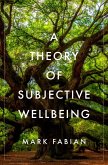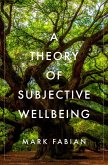Philosopher Keith Lehrer outlines a view of freedom of choice based on a Kahneman-derived distinction between what he calls a first order system that is intuitive and immediate, and a higher order system of response, which he calls a second system of scientific analysis. Lehrer argues that freedom of choice is an expression of attention to the higher order system, and that what is often called
free will is often just doing what you desire, a response that neglects consideration of other options. Freedom of choice acknowledges those options, and preference among them forms in response to the acceptance of evidence. We might suppose that in responding to beliefs that one has attended to evidence, but that is a delusion, because our higher order acceptance of evidence can be overwhelmed by the fixation created by first level belief. What is the difference between just doing what you desire because it feels good and acting on what you prefer because of scientific acceptance? Lehrer points to a form of preference that he says is the ultimate explanation of choice -- what he calls a
power preference. It is a preference that loops back on to itself, a fixed-point vector, and suffices to explain choice. Lehrer's theory of such a power preference includes scientific explanation and consistently accommodates determinism. It is itself a scientific and philosophical explanation, and an ultimate principle of explanation. Lehrer terms the freedom of choice expressing that preference ?ultimate freedom?-- the source of our knowledge and agency both in theory, directing what we rationally accept, and in practice directing freedom of choice.
Dieser Download kann aus rechtlichen Gründen nur mit Rechnungsadresse in A, B, BG, CY, CZ, D, DK, EW, E, FIN, F, GR, HR, H, IRL, I, LT, L, LR, M, NL, PL, P, R, S, SLO, SK ausgeliefert werden.









